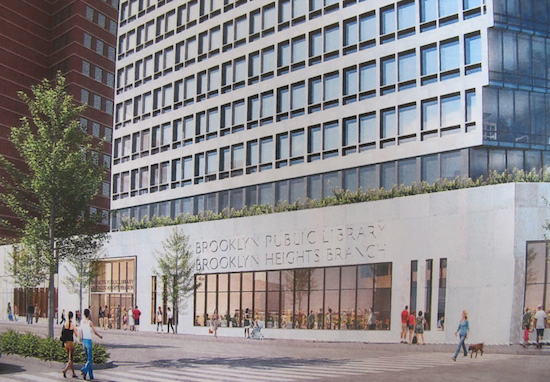Brooklyn Public Library approves $52 million sale of Brooklyn Heights branch to developer Hudson Co.

A sale of the Brooklyn Heights branch of the Brooklyn Public Library (BPL) to real estate developer the Hudson Companies for $52 million will be recommended when the library’s board convenes this evening. The BPL endorsed the measure as a method to finance necessary renovations, improve service, and create new housing (both market rate and affordable units). The recommendations come after a request for proposals (RFP) was issued last year to develop the site and replace the library on the ground floor with a new facility as part of the sale.
At a meeting held at the branch with reporters Tuesday afternoon, Brooklyn Public Library President Linda E. Johnson explained how the Board narrowed in on the Hudson Companies, and what the plan would entail.
“This one of the most competitive requests for proposals processes we have ever seen,” Johnson said. “We received about fourteen proposals, and it took a full year to get down to just three. Over the summer we narrowed it down further to what we thought was the most optimal plan.”

Brooklyn Heights
View MoreRead the Brooklyn Height's Press and Cobble Hill News. Find out more about Brooklyn Height's History here.